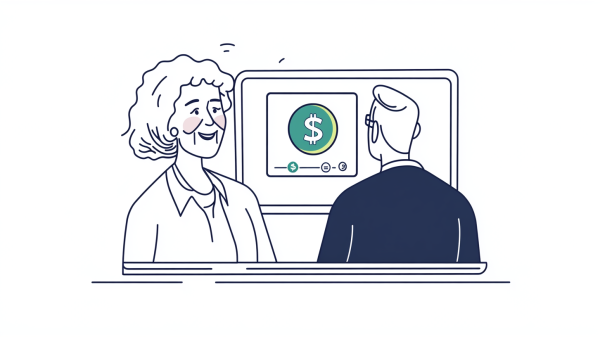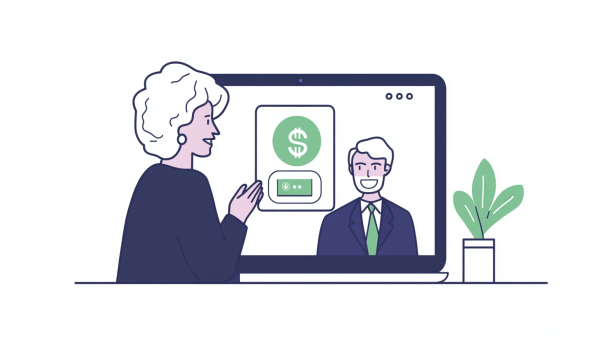Cryptocurrency Scams: How Fraudsters Exploit Bank Transfers to Steal Your Money
Cryptocurrency investment scams have rapidly become one of the most financially devastating forms of Authorised Push Payment (APP) fraud in the UK. These sophisticated schemes leverage both the technical complexity of digital currencies and the seamless convenience of modern banking apps to defraud victims of life-changing sums.
Understanding the Crypto-APP Fraud Connection
What makes cryptocurrency scams particularly effective is how they exploit legitimate banking services. Victims don’t hand cash directly to criminals – they make what appear to be legitimate investments via their trusted bank’s payment systems:
- Faster Payments allow instant transfers from your bank account to the scammer’s account
- Banking apps make it simple to authorize large payments with just a few taps
- Push payment mechanisms provide no protection once you’ve authorized the transfer
Let’s examine the most common cryptocurrency scams that rely on bank transfers and how to protect yourself.
Fake Trading Platform Scams
How the Bank Transfer Process Works
- Initial contact: You’re targeted through social media ads, unsolicited messages, or emails promoting a “revolutionary” crypto investment opportunity
- Platform registration: You create an account on what appears to be a professional crypto exchange
- First deposit request: The platform or “account manager” provides bank details for your initial investment
- Bank transfer process: You log into your banking app and send funds via Faster Payment to the provided account
- False profits displayed: The platform shows your investment growing rapidly
The crucial moment comes when you attempt to withdraw your supposed profits. Suddenly, new “fees” emerge that require additional bank transfers. Each payment is processed instantly through your bank’s faster payment system, making the funds immediately available to the scammers and nearly impossible to recover.
Real-World Example
James saw an Instagram ad for “CryptoWealthX,” promising 25% monthly returns. After registering, he was assigned a “personal investment advisor” named Alex. Following Alex’s advice, James made an initial £1,000 transfer from his Nationwide account to the bank details provided.
His dashboard showed impressive growth, and Alex encouraged him to invest more for “maximum returns.” James transferred an additional £15,000. When he attempted to withdraw, he was told he needed to pay a £2,500 “regulatory clearance fee” via another bank transfer. After paying this, another fee appeared. James lost £18,500 before realizing he’d been scammed.
“Pig Butchering” Relationship Scams
The Bank Transfer Chain
This particularly cruel variant combines romance scams with cryptocurrency fraud:
- Relationship building: Scammers establish trust over weeks or months, often starting on dating apps
- Investment introduction: They casually mention their success with cryptocurrency investments
- Platform recommendation: They offer to “help” you invest through their “trusted platform”
- Multiple bank transfers: You make a series of increasingly larger transfers from your banking app
- Withdrawal obstacles: When you try to access your supposed profits, insurmountable barriers appear
How Banks Are Involved
Victims make multiple transfers from their personal bank accounts directly to accounts controlled by scammers. These often involve:
- Multiple smaller payments that gradually increase, bypassing fraud detection systems
- Transfers to UK bank accounts that are quickly moved offshore
- Using personal rather than business accounts to avoid scrutiny
- Providing “investment reference codes” that make transfers seem legitimate
Real-World Example
Sarah matched with “Michael” on a dating app. For two months, they chatted daily about their lives. Michael occasionally mentioned his crypto investments. When Sarah expressed interest, he helped her set up an account on what seemed like a legitimate exchange.
Over four months, Sarah made 12 separate bank transfers from her Barclays account, totaling £75,000 of her life savings. Each time, she used the bank’s app to send money to accounts Michael provided, using references he specified. When she finally tried to withdraw, the website disappeared, as did Michael.
Celebrity Endorsement Crypto Scams
The Bank Payment Funnel
- Fake endorsement exposure: You see what appears to be a legitimate news article or video featuring a celebrity discussing a “revolutionary” crypto opportunity
- Registration capture: Clicking the link takes you to a professional-looking investment platform
- High-pressure sales call: After registering, you receive calls from “investment specialists” who pressure you to make an immediate bank transfer
- Banking app exploitation: You’re guided through making a payment via your banking app, often while the scammer remains on the phone
- Account manipulation: Your online “account” shows dramatic growth, encouraging further bank transfers
Red Flags in the Banking Process
- Being pressured to make same-day transfers
- Requests to ignore your bank’s fraud warnings
- Instructions to tell your bank the payment is for “consulting services” if questioned
- Being told to break larger payments into several smaller transfers
- Requests to send payments to multiple different account numbers
Real-World Example
David saw what appeared to be a BBC news article about Rishi Sunak promoting a new Bitcoin investment platform that was helping ordinary Britons build wealth. The article linked to a professional-looking investment site.
After registering, David received a call from a “senior account manager” who guided him through making an immediate £5,000 transfer via his Halifax banking app. When David’s bank displayed a fraud warning, the scammer coached him on what to say to ensure the payment went through. David was later shown impressive returns on the platform but when he tried to withdraw his supposed profits, the company demanded additional “verification payments.”
Crypto Recovery Scams: The Double-Fraud
Perhaps the cruelest twist: scammers target those who have already lost money to crypto scams.
The Secondary Bank Transfer Trap
- Victim identification: Scammers identify previous victims through data breaches or public complaints
- Recovery promises: They pose as recovery experts, law firms, or regulatory authorities
- Advance fee request: They require an upfront fee, sent via bank transfer, to begin the “recovery process”
- Bank details provided: You’re given bank account details for making the “recovery service payment”
- Continuing extraction: After the first payment, additional “fees” emerge, each requiring new bank transfers
Banking Red Flags
- Requests for payments to personal rather than business accounts
- Being asked to use references like “consultation fee” or “legal services”
- Instructions to ignore any warnings from your bank
- Pressure to make immediate transfers before “funds disappear forever”
Real-World Example
After losing £10,000 to a crypto scam, Emma received an email from “Crypto Recovery Solutions” claiming they specialized in retrieving funds from fraudulent exchanges. They showed her “evidence” they had found her money and needed £2,000 via bank transfer to “initiate recovery proceedings.”
Emma, desperate to recover her losses, made the payment from her Santander account. The “recovery specialists” then claimed they needed an additional £3,000 for “release fees.” After sending this second payment, all contact ceased. Emma had now lost £15,000 in total.
The Banking App Connection: Why Crypto Scams Rely on Faster Payments
Cryptocurrency scams are deliberately designed to exploit the banking system’s legitimate features:
Fast Transfers
- Immediate availability: Faster Payments provide scammers with instant access to victims’ funds
- No recall mechanism: Unlike card payments, bank transfers cannot be easily reversed
- Cross-border movements: Money can be quickly moved through multiple accounts and offshore
Digital Authentication
- Remote authorization: Banking apps allow transfers to be made without visiting branches
- Limited human oversight: Automated systems may miss warning signs that branch staff might catch
- Familiarity and trust: People trust their own banking apps, reducing skepticism about transfers
Psychological Manipulation
- Investment framing: Victims believe they’re making legitimate investments, not payments to criminals
- Reference codes: Using “investment account” references makes transfers seem official
- Gradual escalation: Starting with smaller transfers helps bypass fraud detection systems
How to Protect Yourself When Using Banking Apps for Crypto Investments
- Verify before transferring: Research any investment platform thoroughly before sending money
- Use the 24-hour rule: Wait a full day before making any investment transfer, regardless of pressure
- Check bank details: Verify the company’s registration and confirm that bank details match official records
- Heed bank warnings: Take seriously any fraud alerts your bank raises during the transfer process
- Use credit cards when possible: They offer better protection than bank transfers
- Be skeptical of extraordinary returns: Guaranteed high returns with no risk are always a red flag
- Verify celebrity endorsements: Check official channels before believing any celebrity is involved
- Consult a trusted friend: Discuss potential investments with someone not involved in the opportunity
If You’ve Been Scammed Through Your Banking App
If you’ve fallen victim to a cryptocurrency scam involving bank transfers:
- Contact your bank immediately: Report the fraud as soon as possible – every minute counts
- Report to Action Fraud: File an official report with the UK’s national fraud reporting center
- Document everything: Save all communications, screenshots, and payment receipts
- Check reimbursement eligibility: Under new regulations effective October 2024, many APP scam victims have strengthened rights to compensation
How APP Claims Can Help You
At APP Claims, we specialize in helping victims of APP fraud reclaim their money, even when banks have initially rejected reimbursement requests:
- Expert case assessment: We’ll evaluate your situation free of charge
- Specialized knowledge: Our team understands the specific mechanisms of crypto scams
- Bank negotiation: We handle all communications with financial institutions
- Evidence building: We construct compelling cases that banks cannot ignore
- Ombudsman escalation: When necessary, we take your case to the Financial Ombudsman Service
All on a No Win, No Fee basis.
Cryptocurrency scams are devastating, but you don’t have to face the aftermath alone. Contact APP Claims today to start your recovery journey and fight for the reimbursement you deserve.
This information is regularly updated as new crypto scam variants emerge. Last updated: April 2025.








